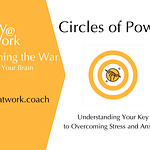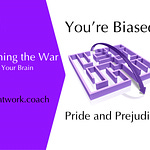Welcome to this edition of the Leadership AdvantEdge Podcast and my purpose this week is to help you confidently make your next meeting or presentation perfect, and not be anxious about it. To do that, today, I'm going to share with you how to do a premortem on your meeting or presentation by asking yourself six questions. On the show notes, I'll share a PDF and a word template that you can download and use to plan your next presentation or meeting premortem and make it perfect. I have a secret to share with you. I have a fear of public speaking. Not because I don't like to be the centre of attention, I love that. No, it's because I'm a bit of a perfectionist. I want everything to be just so, well, perfect. And because of that, every time I have to speak in public, whether in a small group or a large auditorium, I get anxious. Sometimes a little, sometimes a lot anxious. And I'm not alone. Glossophobia is the official term for a fear of public speaking. Most statistics I've seen show between 21% (Psychological Medicine 2003) and 40% (Gallup 2001) of people have a fear of public speaking or performance. Only snakes appear to be feared by more people (in America). What makes giving a presentation so nerve-wracking? It's not just those who give presentations on occasion. Professional speakers and trainers too can get anxious before a presentation. We all have our tricks and tools to get around the issue and I've shared four great hacks you can use in another podcast. But there's another tool that anyone can use to help them overcome any concern, and that's a premortem. You've heard of a post-mortem, where a corpse is examined to determine the cause of death. A pre-mortem takes the same idea but examines the corpse of your presentation before you present to help you prevent its demise. Its purpose is to take your well planned presentation and shake out your own optimistic bias. We need to shake out your optimistic bias? It is estimated that less than 35% of presentation achieve their desired outcome. We have an inbuilt optimistic bias that causes us to ignore baseline data even when it is contrary. We believe in our own skills, abilities or experience and that we will be different and succeed. We believe that they (the audience) will know what they need to do once we present the facts. Gary Klien suggested the idea of a pre-mortem to help organisations improve the success rate of projects. The procedure is simple and I have adapted this to help you improve the success of your presentations. What is a successful presentation? Better still, what makes a perfect presentation? To answer this we have to start with the purpose of a presentation and that is to influence others to change and act. You might be, for example, sharing a new idea with your audience. The change is that the new (without a k) becomes knew (with a k). Now, what do you want the audience to DO with that idea? Surely you desire that they DO something with the new idea? If not, why are you presenting it? A successful presentation then, is one where the audience acts on the information or opportunity. Indeed, that would be perfect. And if they are to act, then we need to be very clear to ask the right questions. Six questions to make sure we successfully get the audience to act. I'll bet that you, like me have sat in way too many meetings that had no actions. You're probably heading out to one today. So if you’re the host, take just five minutes and ask yourself these six questions. Imagine that it is the end of your presentation. You planned it very well but it seems that the audience simply didn’t do what you wanted them to do. It was, in terms of presentation success, a flop. The right questions come from knowing what might derail us. To know that, we have six: What, specifically, did I want the audience to DO at the end of my presentation? Why, specifically, did I want to achieve that? What happened that prevented me from getting it? What would have happened if I d
Joy@Work Podcast
Helping marketplace leaders #UnStuck their true potential to thrive in life and leadership to build a successful, sustainable business with collaborative, high performance teams and Joy@Work with practical, neuroscience-based AdvantEdge Guides and coaching.
Helping marketplace leaders #UnStuck their true potential to thrive in life and leadership to build a successful, sustainable business with collaborative, high performance teams and Joy@Work with practical, neuroscience-based AdvantEdge Guides and coaching.Listen on
Substack App
RSS Feed
Recent Episodes














Share this post